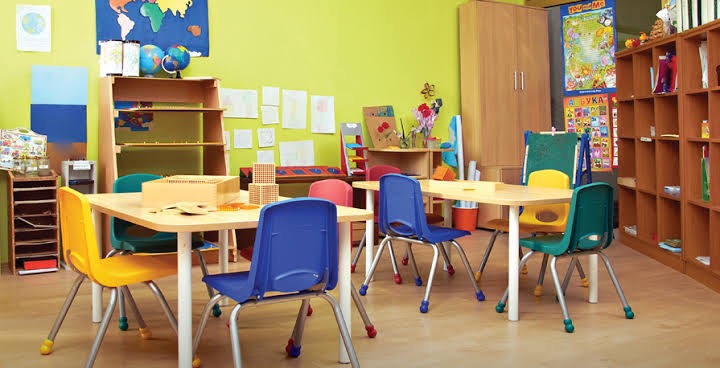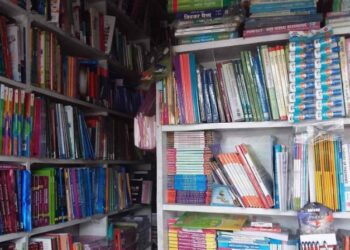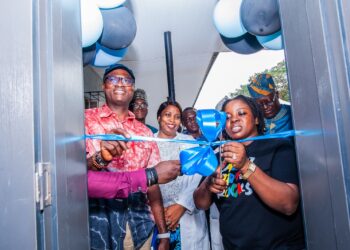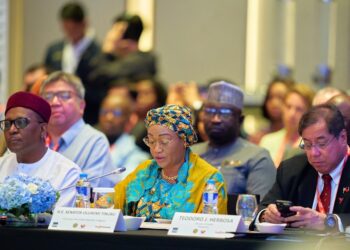CONCEPT OF SPECIAL EDUCATION
Individuals with special needs have potential too, which through effective and efficient training can be developed to the maximum.
Special education is designed for children and individuals with exceptional requirements.
Special education is an individually planned, specialized, intensive, goal-oriented instruction, motives, methods and constant evaluation of human activities and performances relating to their special needs.
Special education comes with its own history, cultural practices, tools which looks into ways to make life easier for children and individuals with special needs.
Special education serves as a technique to help exceptional individuals become self-reliant and lead a happy and purposeful life in spite of the struggles they are constantly confronted with.
WHO ARE EXCEPTIONAL INDIVIDUALS?
Exceptional children and individuals are people who have special requirements. They are just like every other human but have obvious needs which others do not require. They are not out of the ‘normal’ but only happen to be victims of certain circumstances.
Examples Of Exceptional Children/Individuals
1. Gifted or creative child
2. Slow learner or backward child
3. Mentally retarded child
4. Visually handicapped child
5. Physically, orthopedically and health handicapped child
6. Hearing impaired child
7. Learning disabled child
8. Speech and language handicapped child
9. Emotionally disturbed child
10. Socially disadvantaged child
Differences Between Handicap, Disabled And Impaired.
Funnily, as Nigerians, every person we come across with special needs is known as a handicap. These words are seemingly synonymous but they are quite different.
IMPAIRMENT:
Any loss or abnormality of a psychological, physiological or anatomical structure or function.
A problem in certain body parts, e.g the eyes, ears e.t.c
DISABILITY:
Any restriction or lack of ability to perform an activity in the manner or within the range considered normal for a human being.
HANDICAP:
The result when an individual with an impairment cannot fulfill a normal life role.
Handicap is a description between the person and the environment.
PRINCIPLES OF SPECIAL EDUCATION
Special education deals with specific and precise goals. Its foundation is built on certain principles which are:
1. Zero Reject
This is the prime part of the principles of special education. It focuses on dealing with the stigma placed on exceptional children. In many cases, children with special needs are tagged ‘nuisance’ and turned into a ‘rejected stone’ due to their disabilities. This principle tries to tackle that. It is a rule stating that every exceptional person should be accepted ‘as they are’ especially in the education system. It states that students should accept exceptional children as one of them and help them in any area they can. It also fights for an inclusive educational system where children with disabilities are allowed to be in a classroom with other students.
2. Non-discriminatory Identification and Evaluation
It is not a new thing, the way disabled persons are discriminated against in our society today. From the educational system to the career field. These humans are highly criticized as though they themselves wished to be disabled. This principle seeks indiscrimination for children with special needs.
3. Free Appropriate Public Education (FAPE)
The education of children with special needs should be at the public’s expense. Parents should not have to bear the cost as stated in the National Policy on Education (NPE).
The ‘Child Find System’ should be duly carried out; where the state education agency locates, identifies and evaluates all children from birth to age 21 residing in the state with disabilities or who are suspected to be having a disability. And these children should be placed in functioning and appropriate schools and institutions.
4. Least Restrictive Environment
The special child should not be restricted to a certain environment. Mobility should take place; provided the space is not hazardous to their health. The idea of keeping disabled children in a certain space is wrong! They should be allowed to move around as they want.
5. Parents and Guardian’s Involvement
The family is the first and basic institution in a child’s life. They know all there is to know about the child and their needs. It is a keen process to allow them to be involved in the education of the child at every stage.
6. Procedural Due Process
This is commonly known as ‘safeguards’. It is used to reassure students with special needs of the safety and protection of their rights. It also assures the parent that the child is safe in their care and confidentiality will be kept.
GOALS OF SPECIAL EDUCATION
Special education aims at:
1. Helping individuals with special needs develop their maximum potential and become self-confident.
2. Providing an array of programs into the curriculum to help children with special needs.
3. Provision of a flexible system for special needs children/youth.
4. To provide children/individuals with special needs with the appropriate education.
CHALLENGES CONFRONTING SPECIAL NEEDS EDUCATION IN NIGERIA
There are quite a number of hindrances that the special education system of Nigeria battles with. The challenges are of a variety and many arise as a result of weakness in the government sector.
1. Poverty
Walking/driving down the highway or street in Nigeria today, there is with no doubt the countless number of unfit and fit children and youths you’d see begging for alms. It is no great news, how poverty has eaten deep into our nation.
According to a study carried out in Benue, Enugu, Kogi, Imo, Anambra and Abia, it shows that poverty related factors rank first as the most prominent factor holding back families/communities from participating in special education for children with special needs.
We must remember that a country is not judged by how its affluent few lives but how the less fortunate citizens are taken care of.
2. Policy Needs
The policy in special needs education as contained in the Nigeria National Policy on Education (NPE) made this clear.
The problem is, the Nigerian government failed to stipulate the administrative structures or functions of the three tiers of government thereby making it difficult for proper funding.
Evidence has it clearly that the government failed to categorize the criteria of personnels heading special needs schools, programs or institutions. This gives the reason some of these institutions are headed by quacks.
3. Inadequate And Unaccessible Funding
This has been a major barrier. The Nigerian government merely allocates budget to the system but barely evaluates the needs of the special needs children. In most cases, they are left with not enough funds to implement special education effectively.
Corruption is consistent in our economy and sometimes, special needs administrators are even unable to access the funds allocated.
4. Unavailability of Facilities
To enable the education of special needs students run smoothly they need to have certain materials, facilities and services in place. Examples are the braille machine, typewriter, a good sign interpreter e.t.c. All these materials, due to the nonchalant attitude of the government towards special education, are unavailable and it has a great effect on the system and persons with special needs.
5. Lack of Supporting Legislation
The promises entrenched in the National Policy on Education are merely talks on paper without action. Perhaps, if we had supporting legislation, the interest of the special needs children would be represented. Due to lack of political will and any supporting legislation, the promises in the National Policy on Education have been tagged as merely ‘promises on paper’.
Some other challenges facing the system includes: administrative barriers, inadequate and unemployment of professionals, non-implementation and inadequate funding for inclusive education, barriers of access to education, negative attitudes, unavailability of facilities and barriers of parents’ involvement.
SHOULD WE INTERVENE?
Yes, we should.
WHY SHOULD WE INTERVENE?
Change starts from us.
Exceptional children and individuals are also humans. They have needs which are peculiar to only them but that shouldn’t make them less of a human. It is someone else’s child today but tomorrow it could be your family.
Why shouldn’t you intervene and advocate for special education in Nigeria? Why shouldn’t you advocate for inclusive education in Nigeria? Why shouldn’t you advocate for indiscrimination for persons with special needs? Until it reaches you? Then you cry and wish you advocated early enough.
REMEDIES(HOW WE CAN INTERVENE).
1. Early intervention to ensure that students with special needs receive the help they need and the rights of both the parent and child is protected.
2. Discrimination should be reduced by embedding inclusive education in the practice of every school system.
3. By partnering with Non Governmental Organizations for better welfare of persons with special needs.
4. Organizing outreach programs to help raise awareness on exceptional persons and their needs.
5. The government should carry out a major assessment on the needs of the system before allocating a budget.
6. The Nigerian National Policy on Education should be reviewed.
7. Sensitization should be organized for students to create awareness about special needs students and how they can help.
Conclusively, If you are the kind of person who would discriminate against individuals with special needs, stop it! If you know people who also discriminate or you see people discriminating against them, tell them to stop!
If you have a neighbor who sees no need in sending his/her child with special needs to school, educate them today! If it’s your sibling and your parents have refused to let them school, speak up! Let them know that just like us, these persons need education too and it can be gotten. If you can, sponsor their education. Advocate for special education for children and individuals with special needs! Advocate for an inclusive educational system!
EXCEPTIONAL INDIVIDUALS ARE HUMANS TOO!
Rizqah Aberuagba,
Student, Lagos State University, Ojo.





















